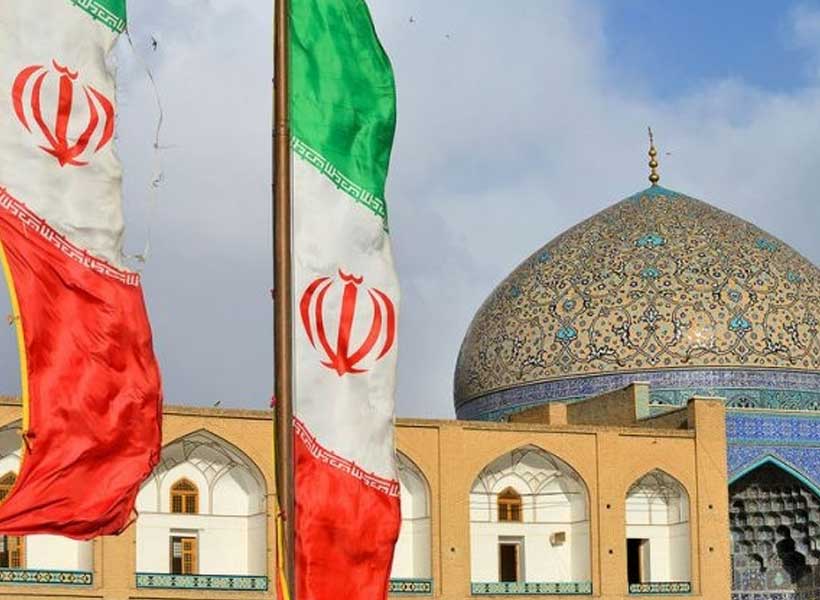The situation in the Middle East is still tense. First of all, because of the aggravating relations between Iran and the United States, that resemble a roller coaster. A temporary stabilization follows the next peak, but at a level below the previous aggravation. Then a new incident takes place or another ultimatum is given by one of the parties, and everything repeats again.
Tensions with Iran have steadily increased since U.S. President Trump withdrew the United States from the 2015 Iranian Nuclear Agreement and re-imposed harsh economic sanctions on Iran. Rouhani and other Iranian officials accuse the United States of engaging in “economic terrorism.”
The international community now is watching the development of the conflict between the US and Iran. The regular imposition of new sanctions on Iran, the start of tanker wars, the mutual threats of Washington and Tehran become a real threat to international security. The projects exempted from US sanctions include the Bushehr Nuclear Power Plant, the Fordow Fuel Enrichment Plant (FFEP) and the Arak heavy water nuclear reactor.
It seems clear the Iranians have little inclination or motivation to back down. They will probably increase the aggression toward merchant shipping, either putting mines in the Strait of Hormuz (which they did as part of the so-called “tanker wars” in the 1980s) or actually sinking a ship, probably surreptitiously using a diesel submarine.
Meanwhile, anti-Iran sanctions hit considerably Iran’s partners. They are forced to look for mechanisms of evading these sanctions and to look for new formats of interaction in order to protect existing ones.
Today, many countries reject full economic cooperation with Tehran. But the format of cooperation, aimed primarily at the implementation of global economic and transport projects, continues to exist. The next trilateral summit of the leaders of Russia, Azerbaijan and Iran is clear evidence that this format of cooperation is beneficial. All the sanctions can’t hinder it.
If we imagine that the war between the USA and Iran will start, it will become an unconditional, non-compensating disaster for all its participants. That will be a war without winners. All the involved parties will lose.
As a neighboring country Azerbaijan will inevitably be drawn into the conflict. It can turn into a catastrophe, as refugee flows and extremists will head to Azerbaijan, especially from Iranian (Southern) Azerbaijan region.
So far, the President of Azerbaijan Republic Ilham Aliyev remains the most successful leader of the South Caucasus. He is confidently controlling the ship of the state. With its reasonable policy, Azerbaijan has already ensured its own place in a multipolar world. And this place does not mean that Azerbaijan will follow Russia and China instructions. The government of Baku will act in accordance with its own interests that ensures independence and a place in the future multi-polar world.
The main thing is to continue this course being afraid of nothing, but acting within the framework of international law, if some other country commits indecent acts. A real politician should not fall prey to intimidation, the psychological attack of the West countries. This politician weighs reality, facts, actions. If Azerbaijan succumbs to such an attack, the tested methods will be applied in response such as color revolutions, external pressure and etc.
For Azerbaijan, the Islamic Republic of Iran is not just an ordinary country. First of all, Iran is the Azerbaijan Republic’s southern neighbor. The 2 states share about 618 kilometers of land borders. These two countries border each other in the Caspian Sea as well. Both countries share values from their mutual past and some elements of a common culture. Azerbaijan has the second largest Shi’i population in the world, after Iran. The membership of both countries in Muslim and regional organizations like the Organization of Islamic Conference and ECO, is an indicator of the countries’ affinities in terms of geography and religion.
The history of direct relations for the last 10 years shows that such positive and binding factors as neighborhood and the same religion are not enough to create close relations between them. Other important factors, which affect current relations between Azerbaijan and Iran, exist as well.
Azerbaijan is well aware that there can be no sovereign state in a unipolar world. This simple, but very sober and very courageous calculation dictated Aliyev’s policy of supporting the Iran-Azerbaijan-Russia format of cooperation.
The Islamic Republic of Iran plays an active role in the geopolitical struggle over Caspian oil. As major hydrocarbon exporters themselves, Russia and Iran view the new oil and gas producers in the Caspian region as a threat to their own economic interests. Just like Russia, Iran is deeply concerned over growing western capital investments and the expansion of foreign interests and presence in the region. Being unable to compete with US and European technology and capital in tapping the abundant Caspian natural resources, Iran and Russia have resorted to non-economic ways of influence in the region.


